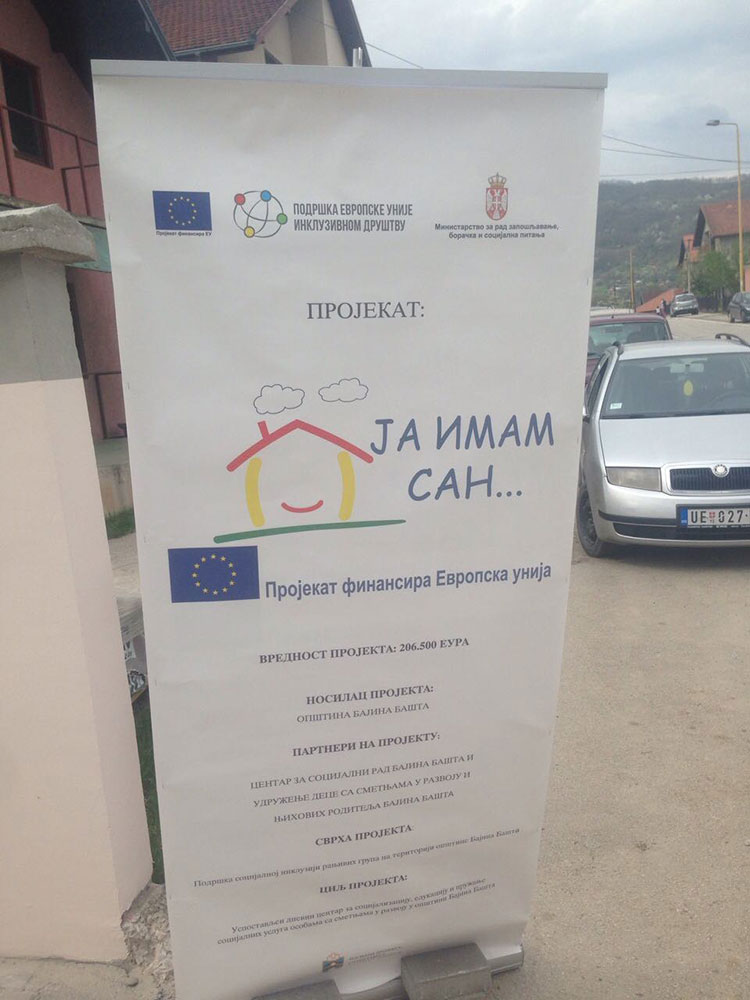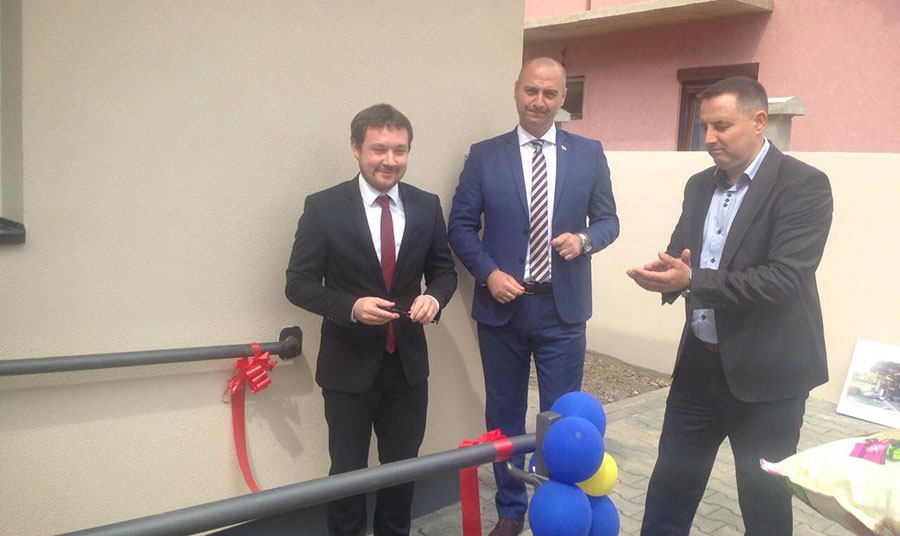With the support from the EU, Dream daycare centre for children and youth with disabilities was officially opened on 4 April 2017 in Bajina Basta within the project “I Have A Dream”. The facility owned by the Municipality of Bajina Basta has been redone in order to create environment for a pleasant stay, performance of future activities, improved status of children and youth with disabilities in Bajina Basta and sensitization of the local community to understand and accept persons with disabilities.
 Nikolas Bizel of the EU Delegation to Serbia attended the ceremony as a part of activities within the EU-funded “European Support for Inclusive Society” programme worth EUR5.4 million implemented by the EU Delegation to Serbia in cooperation with the Ministry of Labour, Employment, Veteran and Social Affairs. Bajina Basta Municipality started the project “I Have A Dream” in partnership with the local Centre for Social Work and the Association of children with disabilities and their parents.
Nikolas Bizel of the EU Delegation to Serbia attended the ceremony as a part of activities within the EU-funded “European Support for Inclusive Society” programme worth EUR5.4 million implemented by the EU Delegation to Serbia in cooperation with the Ministry of Labour, Employment, Veteran and Social Affairs. Bajina Basta Municipality started the project “I Have A Dream” in partnership with the local Centre for Social Work and the Association of children with disabilities and their parents.
Services of the daycare centre, which became operational in November 2016, will be available to 14 children – 12 previous and 2 additional beneficiaries in the newly-opened premises. The daycare centre beneficiaries will acquire new skills and increase their ability to develop concrete, practical skills for everyday life that will further facilitate their integration into society. Daycare centre educational services will create nurturing environment and achieve psycho-physical well-being and relaxation of both beneficiaries and their families through workshops and other methods (sensory room, Montessori, etc.) in accordance with individualized service plans.
The “European Union Support for Inclusive Society” is an EU-funded programme worth EUR5.4 million which aims to ensure greater social inclusion of vulnerable groups in Serbia such as the elderly, children and minorities, including Roma and others. The EU has granted EUR4.3 million in the form of 28 grants through the project, which will be implemented in 36 towns and municipalities in Serbia by the end of 2017. The projects implemented by the national and provincial social welfare institutions, towns and municipalities, centres for social work, citizens associations, foundations, educational institutions and public companies will increase the scope and quality of services at the local level in the areas of social and health care, housing, education and employment, and thereby strengthen social inclusion of vulnerable groups.
The project is implemented by the Delegation of the European Union to the Republic of Serbia (www.europa.rs) in cooperation with the Ministry of Labour, Employment, Veteran and Social Affairs (www.minrzs.gov.rs).
For more information about the project visit www.socijalnainkluzija.rs




